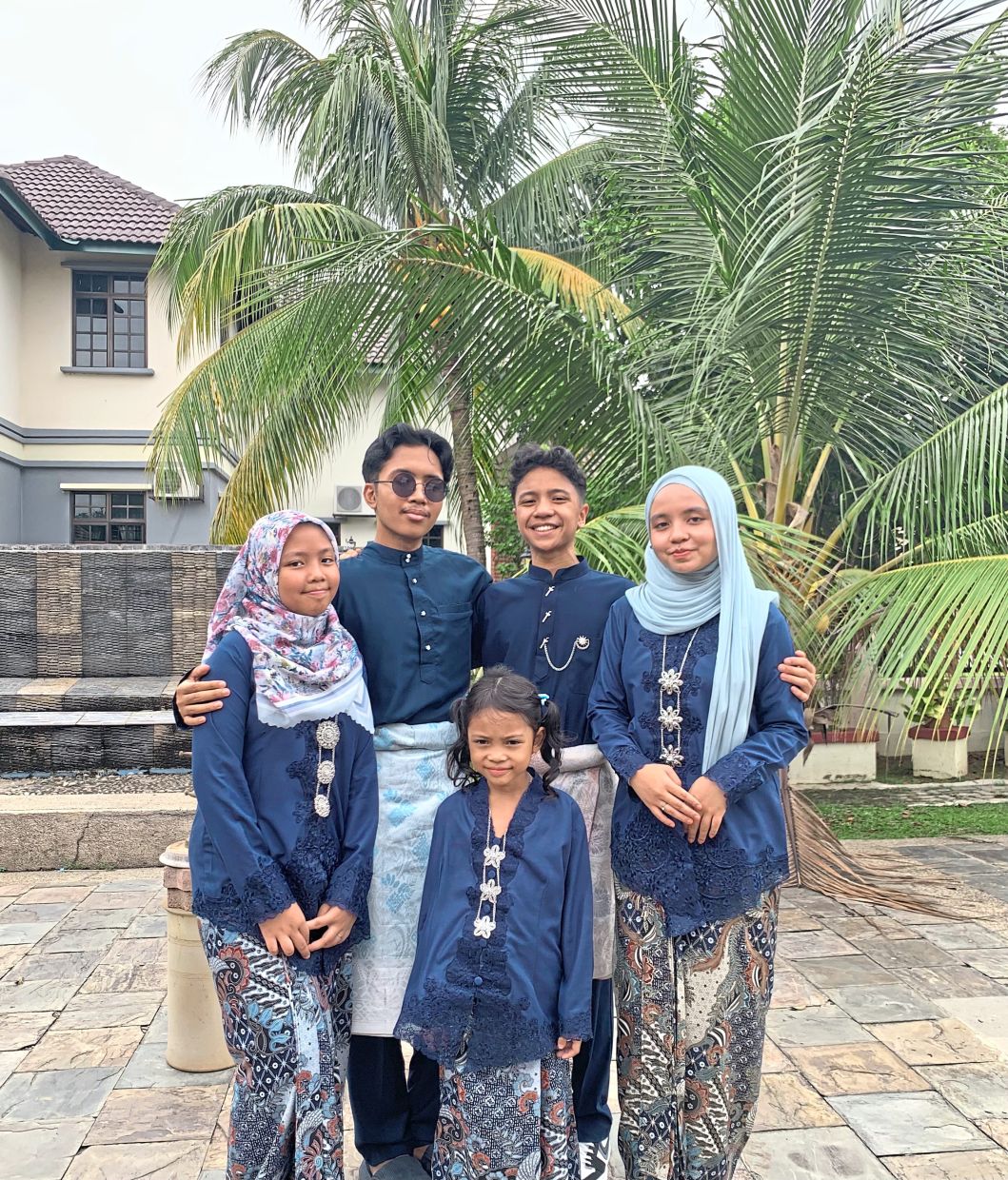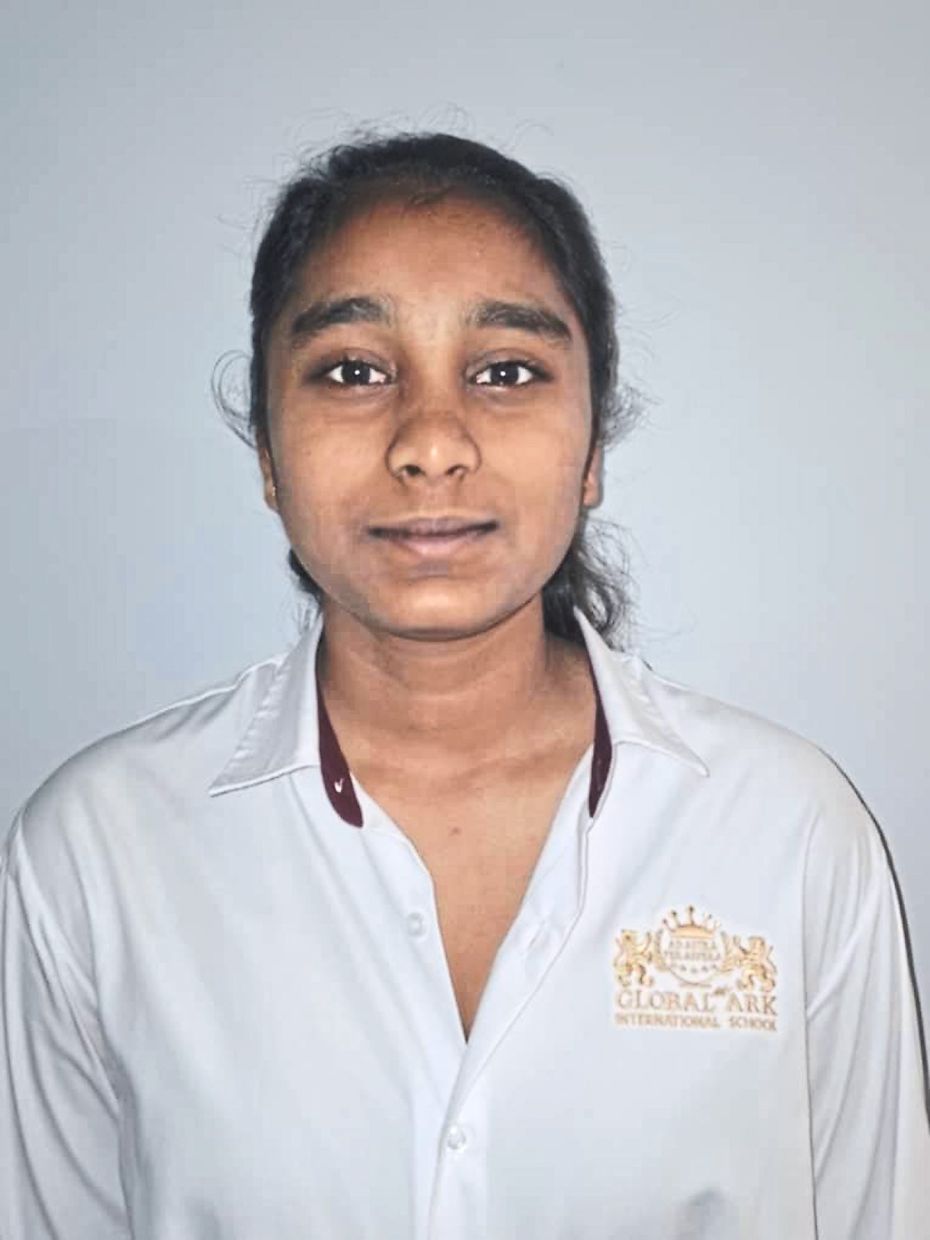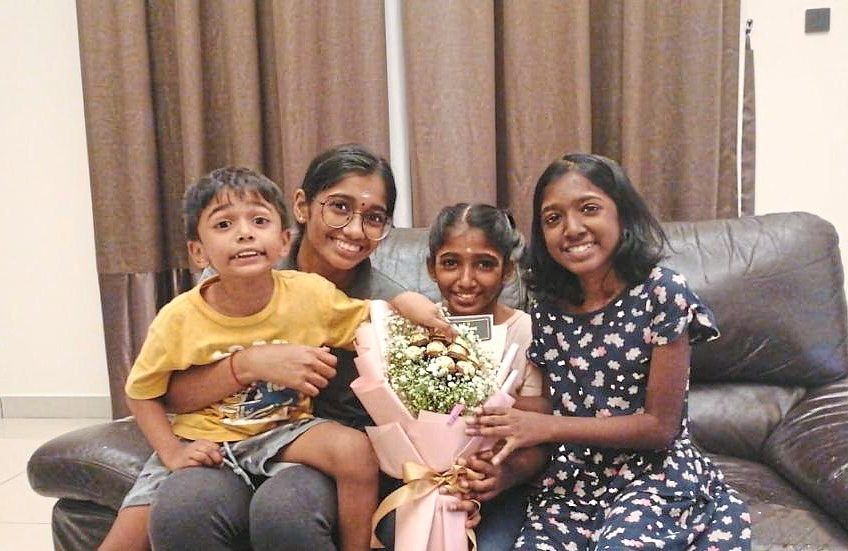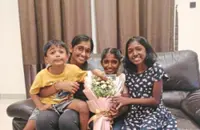THE family unit is the bedrock of society, and siblings play a major role in it.
Here, three participants of the BRATs Young Journalist Programme, run by The Star’s Newspaper-in-Education (Star-NiE) team, share the lessons they have gained from their sibling relationships.
For updates on the BRATs programme, go to facebook.com/niebrats.
Forever friends in chaos
A FEW days before my mother delivered my first younger brother, two-year-old me sidled up to her and said, “Mama, I don’t want a sibling.”
Three years later, I had another brother. By the age of 12, I had two sisters to balance the ratio. So, for most of my life, I have been part of a chorus of chaos.
To me, siblinghood offers an extended sociology course under one roof.
Key takeaway: it’s all fun and games having playmates until something goes awry and a toy is thrown across the room, well aimed at you. Or you get snitched on. Maybe that is worse.
As sure as patience is a never-ending lesson, it certainly takes root at home. Like it or not, you learn to navigate those maelstroms.
Over time, it becomes a habit to consider the other person, to pause before taking, to share, even to concede a treat. You learn to be selfless and thoughtful.
Siblinghood also offers an opportunity for redemption. No one is perfect after all, so starting with those who share your home to break unhealthy cycles can be a powerful first step.
I try to be conscious of my remarks, and I make sure to hug them when saying hello or waving goodbye. After doing something wrong or getting mad, I remind myself to apologise.
But my childhood years were a blur of fighting and playing against a backdrop of conflicting familial feelings.
At one point, though, I knew for certain I would do anything for my siblings – except maybe fetch their stuff. By then, I had the right to boss them around remorselessly.
Of course, I still stumble and err in my journey to be the best sister in the world. At times, I give them murderous dagger eyes or pinch an arm.
Growing older also means testing sensitivities and developing egos – which can be thornier than worrying about the size of your slice of cake or toy trains flying towards you.
At the end of the day, siblinghood offers continual humbling experiences, and you carry those lessons far into life.
For people who have seen me at my literal and figurative worst – countless times at that – my siblings do a remarkably impressive job of sticking around.
Truth be told, I love them very much. During a bleak period in my life, the thought of them was the one bright light that steered me forward. I kept going for them, if not for myself.
So, to my four siblings who have had the fortunate fate of getting me as their sister: I hope our shared laughter and misery cement our bond of blood and history forevermore.
You really are my forever friends. — By AMIRA AISHA, 21
Shaped in the middle
GROWING up between two siblings – an older brother who always seemed years ahead of everyone else, and a younger sister whose presence was anything but quiet – has shaped me in ways I’m only beginning to understand.
In a household constantly filled with opinions, energy and tension, I found myself learning who I was, not by standing alone, but by being surrounded.
As a child, I didn’t have my own opinions. I simply mirrored my older brother. To me, he was brilliant – always knowing the right answer and effortlessly excelling.
If he said something was worth liking, I liked it. If he admired a book, a film or an idea, I admired it too.
He taught me to be curious, to ask questions, and to approach the world with thoughtful calculations.
His brilliance also set a high bar, one that quietly urged the rest of us to push harder, to aim higher.
Growing up in his shadow wasn’t easy, but it taught me ambition and persistence, even when the standard felt out of reach.
As we grew older and drifted apart, as siblings often do, that early influence remained.
Though we no longer spend hours side by side, the way he processes the world still echoes in how I make decisions and solve problems.
My relationship with my younger sister was, and still is, complicated. In our earlier years, we fought constantly – almost every day – whether over the television, the last snack, or something as simple as a glance.
It was exhausting, yet strangely defining. She challenged me in ways no one else could.
Now, something has shifted. Once a participant in our conflicts, I have become the mediator between my siblings. It is an uncomfortable position, but it has taught me how to listen, weigh words, and remain steady in chaos.
In many ways, being between these two very different personalities has shaped the core of who I am.
From my brother, I have developed an analytical mind that values structure, thoughtfulness and clarity. From my sister, I have gained emotional awareness – a kind of sensitivity and strength I wouldn’t have had without years of navigating our rivalry.
And from standing between them, I have learnt balance, patience and the importance of voice – both my own and others’.
Even when ignored, I have gained resilience, humility, and the quiet strength of knowing I helped, whether acknowledged or not.
I have learnt that identity doesn’t always form in isolation. Sometimes, it is carved through contrast – in the moments when you’re forced to reflect, respond and grow.
I am who I am, not despite my siblings, but because of them – their differences, brilliance, chaos and challenges.
And while our relationships continue to shift with time, one thing remains certain: they have each played a part in shaping not just my childhood, but also my character. — By VINITHA PUTTAGUNTA, 15
My first teachers
AS the eldest in my family, my childhood revolved around my siblings, and that significantly shaped who I became.
My sisters’ strength and patience gave me the courage to face my battles, and my brother’s daring energy taught me to take risks and never look back.
In countless ways, often without realising it, the principles and moral values I hold on to so dearly today reflect the little lessons they built into me.
Of course, growing up with siblings wasn’t always easy. There were slammed doors, silent treatments, and competitions that felt like battles for survival.
Sibling game night, for instance, could get heated – a “quick, simple game” of Uno or Monopoly would turn into a war of strategy.
Both my sisters and I were typically the strategists, calculating every move, while my brother threw caution to the wind.
So, you can imagine how almost every game went – someone called a foul, the rulebook was intensely reviewed, someone eventually lost it, the board hit the ceiling, and cards and dice went flying.
Yet, even in those heated moments, I was learning how to stand my ground, how to forgive, and how to move forward with renewed strength.
Arguments are an integral part of sibling love-hate relationships – whether it’s heated debates over pressing the lift buttons or sitting in the front seat.
As the oldest child, I often took the blame for most of the arguments. These conflicts taught me resilience, empathy, and an incredible amount of patience.
Navigating these turbulent waters of sibling dynamics can be challenging, yet it’s often incredibly rewarding, enabling us to understand both others and ourselves on a deeper level.
Because no matter how much they may frustrate, misunderstand or even outshine you, siblings are your first teachers in conflict, compromise and compassion. You learn to share, to give, to let go.
At the end of the day, despite the countless arguments, fights and conflicts, whether you realise it or not, you’ll always love them, beyond what words can possibly express.
One of life’s biggest wounds is not appreciating people enough while they’re here, and regretting those moments when they’re gone. So, love your siblings with all your heart. — By NAVENA SRIE, 17
With the theme of the article in mind, carry out the following English language activities.
1 If you had a sibling, how would he or she describe you? Share your answer with the class.
2 In groups, invent an imaginary family of four siblings by cutting out pictures of four personalities from today’s newspaper. Assign each “sibling” a superlative such as the messiest, the bossiest, the funniest, the dreamiest. Introduce your family to the class, for example: “Meet our sibling Max – he’s the loudest and always tells the worst jokes.”
The Star’s Newspaper-in-Education (Star-NiE) programme promotes English language learning in primary and secondary schools nationwide. For Star-NiE enquiries, email starnie@thestar.com.my.










